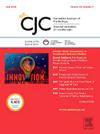ecls -休克和危险休克:用于急性心肌梗死所致心源性休克的最佳临时机械循环支持的意义。
IF 5.8
2区 医学
Q1 CARDIAC & CARDIOVASCULAR SYSTEMS
引用次数: 0
摘要
尽管各方一致努力迅速识别心源性休克合并急性心肌梗死(AMI-CS)患者并及时提供血运重建,但早期死亡率仍然居高不下。虽然通过使用临时机械循环支持(tMCS)装置人为地增加全身流量有望降低多器官功能障碍的进展速度,从而提高生存率,但关于患者和装置的适当选择以及相对于其他关键干预措施的装置植入时间的问题仍然难以获得可靠的益处证据。使问题进一步复杂化的是,必须为这一复杂的患者群体提供资源密集的多学科护理系统。直到最近,tMCS的研究在设计、治疗人群和装置植入时间方面与休克发作和血运重建有关,都是极不一致的。总结现有数据的尝试导致缺乏任何类型的tMCS模式的明显益处。在此背景下,最近发表了两项具有里程碑意义的AMI-CS环境下的tMCS试验——ECLS-SHOCK和DanGer Shock——结果不同,值得详细考虑。因此,我们在此对AMI-CS的tMCS知识现状进行了详细的叙述回顾。介绍了最常见的tMCS类型和相关证据,以及组织考虑的证据,如突击小组。我们还提供了一些关于如何将这些新证据纳入今天的实践并影响未来研究的见解。本文章由计算机程序翻译,如有差异,请以英文原文为准。
ECLS-SHOCK and DanGer Shock: Implications for Optimal Temporary Mechanical Circulatory Support Use for Cardiogenic Shock Due to Acute Myocardial Infarction
Despite concerted efforts to rapidly identify patients with cardiogenic shock complicating acute myocardial infarction (AMI-CS) and provide timely revascularization, early mortality remains stubbornly high. Although artificially augmenting systemic flow by using temporary mechanical circulatory support (tMCS) devices would be expected to reduce the rate of progression to multiorgan dysfunction and thereby enhance survival, reliable evidence for benefit has remained elusive with lingering questions regarding the appropriate selection of both patients and devices, as well as the timing of device implantation relative to other critical interventions. Further complicating matters are the resource-intensive multidisciplinary systems of care that must be brought to bear in this complex patient population. Until recently, studies of tMCS were extremely heterogeneous in design, populations treated, and timing of device implantation with regard to shock onset and revascularization. Attempts at summarizing the available data had resulted in a lack of clear benefit for any type of tMCS modality. On this background, 2 landmark trials of tMCS in the setting of AMI-CS---ECLS-SHOCK and DanGer Shock---have recently been published with divergent results that deserve detailed consideration. Thus, we provide a detailed narrative review of the current state of knowledge regarding tMCS for AMI-CS. The most common types of tMCS and related evidence are presented, as well as evidence for organizational considerations, such as the shock team. We also provide some insight into how this new evidence may be incorporated into practice and influence future research.
求助全文
通过发布文献求助,成功后即可免费获取论文全文。
去求助
来源期刊

Canadian Journal of Cardiology
医学-心血管系统
CiteScore
9.20
自引率
8.10%
发文量
546
审稿时长
32 days
期刊介绍:
The Canadian Journal of Cardiology (CJC) is the official journal of the Canadian Cardiovascular Society (CCS). The CJC is a vehicle for the international dissemination of new knowledge in cardiology and cardiovascular science, particularly serving as the major venue for Canadian cardiovascular medicine.
 求助内容:
求助内容: 应助结果提醒方式:
应助结果提醒方式:


